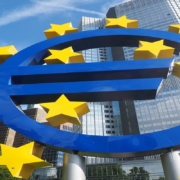Policy focus behind Croatia’s day of good news
Image by Niek Verlaan from Pixabay
On Friday, June 5, the European Central Bank released its (positive) Asset Quality Review (AQR) on Croatian banks and Fitch maintained Croatia’s investment grade credit rating with stable outlook. The AQR result is important for entry into the Exchange Rate Mechanism II and is honestly not that surprising. Fitch maintaining a stable outlook on Croatia’s sovereign rating is what speaks volumes to me. After all, consensus is moving towards a double-digit contraction in GDP this year.
Why 1+1 > 2 (in this case)
In my opinion, there are many reasons for these two pieces of welcome news. Here’s a non-exhaustive list:
- Firmly anchored in the West (in NATO and the EU, unlike during the previous global recession in 2008). Whatever view one may have on the EU (or NATO), membership of these clubs reduced policy risks and increased access to cheaper financing;
- Deleveraging since the last global recession. All sectors of the economy saw debt (as a precentage of GDP) fall in the five years to the end of 2019. While the world racked up record levels of debt, Croatia managed to fix part of its roof while the sun was shining.
- Learning from past mistakes. This time around, when the crisis hit, policy makers did not raise taxes, but actively sought to help the private sector ride out COVID-19;
- Efficient epidemiological response to COVID-19: policy makers and experts were aware of the risks to the health system, reacted appropriately and on time. Bonus (welcome) unintended consequence: citizens got a real time lesson in the value of paying taxes and proof that public servants can (and many do) work hard and well;
- Did not blow up the second pillar of pension reform. Despite all the largely adverse amendments since the original system came into effect in 2002, it is still here. The European Commission’s Debt Sustainability Monitor identifies this as one major contributor to long-term fiscal policy sustainability;
- The Croatian National Bank implemented QE successfully. The economy is better placed to deal with moderate currency depreciation compared to 2008. This is proof of progress. The ECB’s positive AQR on Croatia’s banks underlines the central bank’s ability to implement policy consistently over the long-term.
- Political stability despite enduring a lengthy recession (2009-2014) – focus remains on achieving the strategic goals of euro adoption and Schengen entry.
Making sure 1+1 < 2
I am not saying there is not plenty still to fix in the country, nor underplaying the risk of policy mistakes and other adverse events in the future. Also, coming out the other end of this brutal recession will be a challenge. How to keep production capacities intact and retain a human capital base to drive growth will keep policy makers awake at night.
The list above shows Croatia achieving long-term policy goals, which resulted in two pieces of positive news in one day. That should generate optimism and motivate policy makers to maintain focus in these challenging times.









